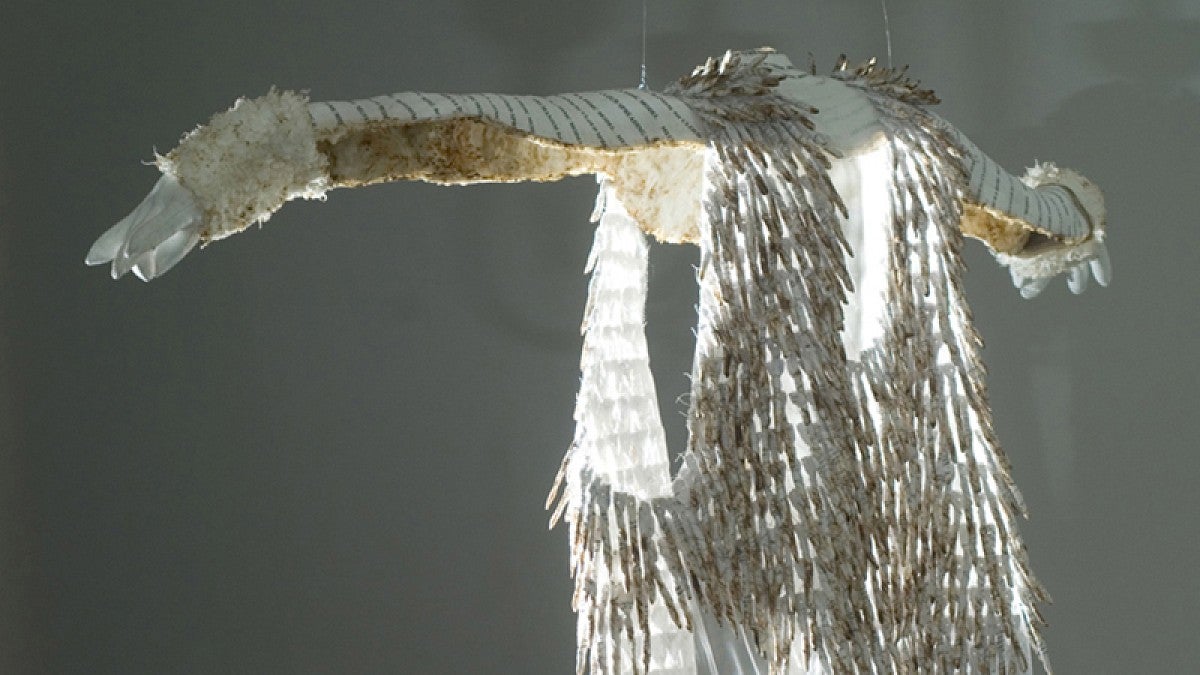A new exhibit that uses the materials of science to create art will go on view later this month at the UO’s Jordan Schnitzer Museum of Art.
Barbara MacCallum’s “Appropriating Science” will be on view in the Artist Project Space from Sept. 23 to Jan. 28. The Irish-born artist uses the scientific papers of her husband, Robert Johnson, a physicist professor at the University of Virginia, as well as casts of his body to create powerful and provocative works of art.
The exhibition opens with a free public reception Friday, Sept. 22, from 6 to 8 p.m. MacCallum will lead an artist talk on Saturday, Sept. 23, at 11:30 a.m.
“In a society that places science above art in its educational systems, its financial rewards and its methods of recognition, I am reversing the relationship by appropriating the materials of science, obliterating their usual function and reconfiguring science into art,” MacCallum writes. “My work has evolved through a collaborative relationship with my husband, who is a physicist; I cast his body and recycle his published papers giving a new existence to the detritus of science.”
This exhibition features four of MacCallum’s most recent works: “Europa's Radiation Environment and its Effects on the Surface (Shawl),” “Mechanism for Cloud Spreading in the DSMC Model II (Wings),” “Mars’ Upper Atmosphere under Extreme Solar Wind Conditions (Dress)” and “Mechanism for Cloud Spreading in the DSMC Model I (Vest).”
Composed of scientific papers, polymer mediums, wire screening, Irish linen thread and other materials, the works command space and create an environment both otherworldly and familiar
“Enigmatic, transgressive and sensuous, her sculptures invite us, perhaps even dare us, to set aside our own distinct identities in favor of losing ourselves in her alien world,” said Jill Hartz, the museum’s executive director, who has worked with the artist since 1996.
“Appropriating Science” is the first exhibition supported by a new endowment, the Hartz FUNd for Contemporary Art. The exhibition is accompanied by a catalog written by Hartz and recent UO graduate Amelia Anderson.


